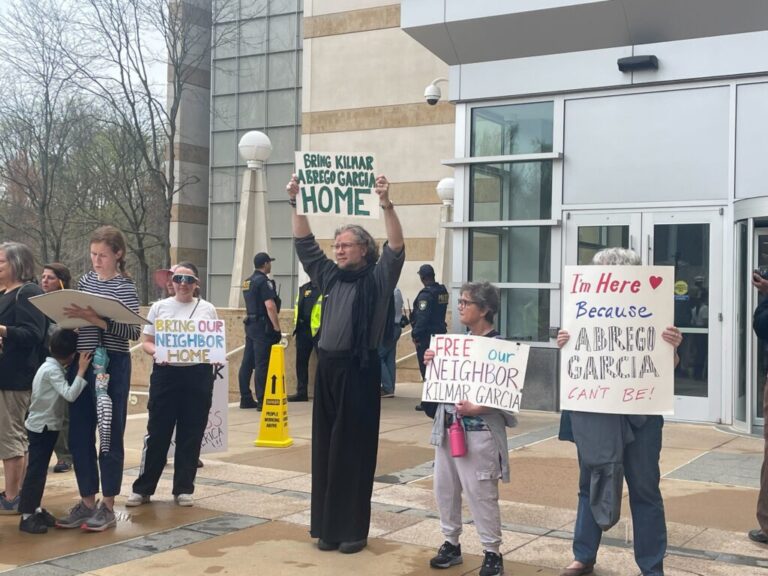Federal Judge Orders Return of Maryland Father Deported to El Salvador
Greenbelt, Maryland — In a significant ruling on Friday, the U.S. District Court of Maryland mandated the Trump administration to facilitate the return of Kilmar Armando Abrego Garcia, who was wrongfully deported to El Salvador, by April 7. This decision follows a previous court order that prohibited such removal.
Background of the Case
Judge Paula Xinis, appointed by former President Obama, stated that officials acknowledged the deportation of Abrego Garcia was a mistake. The Maryland father, who had been living in Beltsville, was taken from his family and sent to a notorious prison in El Salvador named Centro de Confinamiento del Terrorismo (CECTOT) under conditions deemed unconstitutional.
During the ruling, cheers erupted outside the courthouse as supporters awaited the verdict. However, later that day, the Department of Justice announced it would appeal the decision to the U.S. Court of Appeals for the 4th Circuit.
Constitutionality of the Deportation
Judge Xinis asserted that there was no legal basis for Abrego Garcia’s removal, emphasizing that his arrest by U.S. Immigration and Customs Enforcement (ICE) had no grounds for deportation. “From the moment he was seized, it was unconstitutional,” she declared.
The government’s attorney, Erez Reuveni, maintained that the only argument was that the Maryland court lacked authority since Abrego Garcia was now in El Salvador. However, he could not articulate the reasons behind his removal and acknowledged not having satisfactory answers from the Department of Homeland Security regarding the circumstances of his detention.
Financial Implications of the Legal Battle
Attorneys representing Abrego Garcia are not only seeking his return but are also demanding an end to U.S. payments to the El Salvadoran government for his detainment. Reports indicate that approximately $6 million is allocated for the detention of nearly 300 individuals at this prison, raising concerns about the U.S. involvement in these operations.
Judge Xinis argued that the financial arrangements indicate a coordination between the two governments, thus challenging the assertion that the U.S. lacks control over Abrego Garcia’s custodial status.
Context of Deportation and Current Developments
On March 15, Abrego Garcia was among several individuals deported under wartime statutes without due process. While he was previously granted asylum due to the likelihood of gang persecution in El Salvador, he was still subject to yearly check-ins with ICE. His latest interaction with ICE led to his quick removal.
Judge Xinis pressed Reuveni on the legal justifications for the deportation, which remained unclear, reinforcing the notion that this action lacked legitimacy.
Claims of Gang Affiliation
The White House, alongside officials like Vice President J.D. Vance, has claimed that Abrego Garcia was associated with the MS-13 gang, a position that supports the rationale for his deportation. Nonetheless, Abrego Garcia has no criminal history in either the U.S. or El Salvador, which his attorney Simon Y. Sandoval-Moshenberg highlighted during the proceedings. This discrepancy raises questions about the validity of the evidence against him, which included ambiguous allegations and personal attire interpretations.
Conclusion
The case of Kilmar Armando Abrego Garcia underscores the complexities surrounding immigration laws, governmental accountability, and the rights of individuals facing deportation. As the legal battle unfolds, the implications could extend beyond Garcia, potentially affecting other deportees who may have faced similar administrative oversights.


